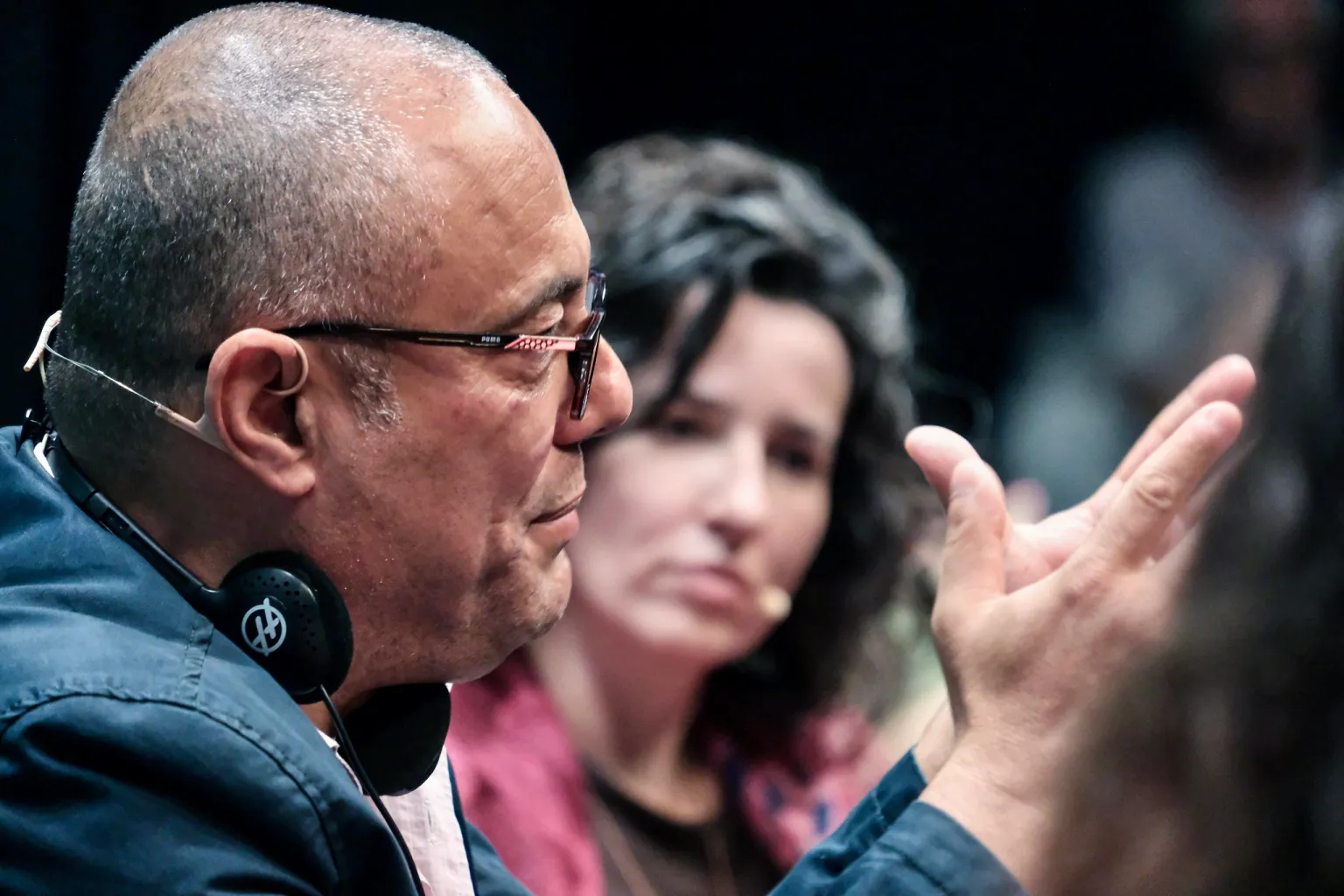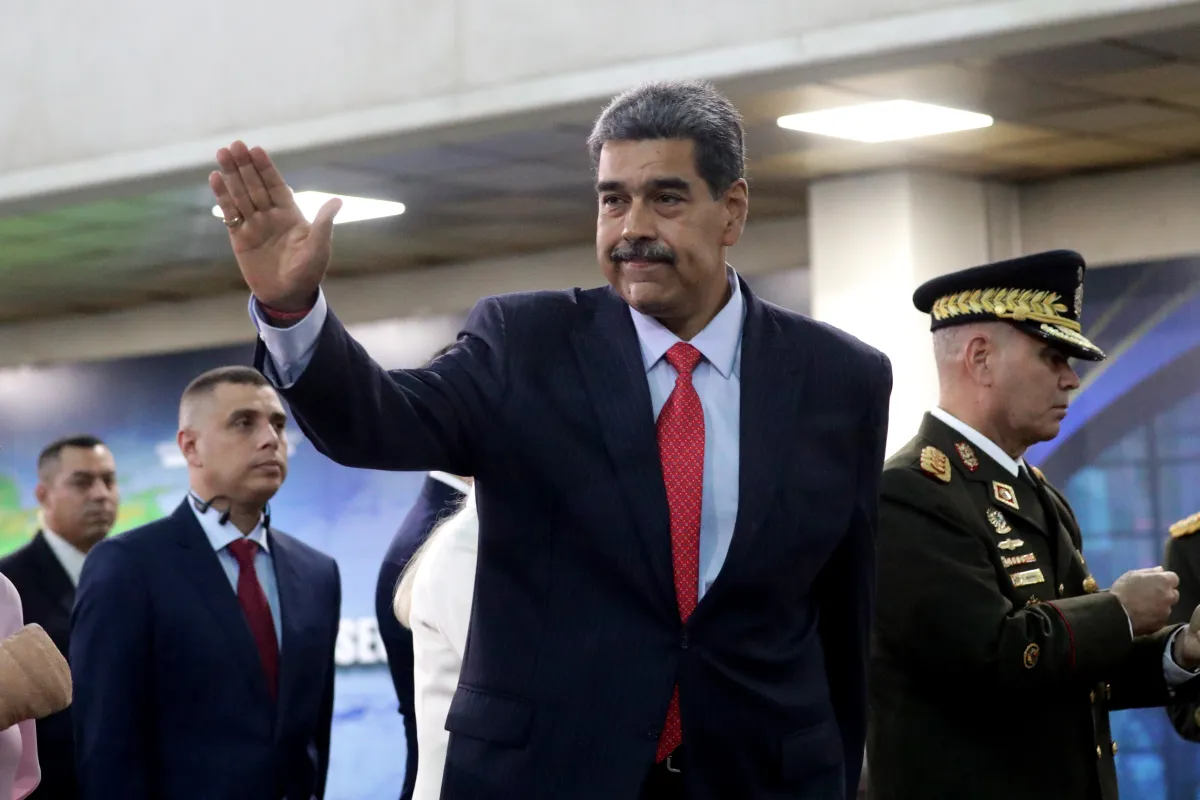International
“Israel’s goal is to destroy memory,” says former Palestinian Minister of Culture

The writer and former Palestinian Minister of Culture Atef Abu Saif said that Israel’s goal is to destroy memory, eliminate Palestinian history and any evidence that unites the Palestinian people with their land.
“They are destroying museums, theaters, cultural centers… They try to eliminate our history,” said in an interview with EFE the author of ‘I want to be awake when I die: diary of the genocide in Gaza’ (2024), who traveled to Brazil to participate in a literary fair.
Cultural losses for Palestine due to Israeli attacks
The latest report of the United Nations Educational, Scientific and Cultural Organization (UNESCO) reported that, of the 120 sites it monitors through satellite images in Palestine, 69 were damaged since October 7, 2023, the day of the radical group Hamas attack on Israel that started the war.
Among them are religious sites, buildings of historical and/or artistic interest, deposits of cultural property, monuments and archaeological sites.
One of the key losses for the Palestinian people, says Saif, was the destruction of the Central Archive of Gaza City, which contained historical documents more than 150 years old, in December 2023.
The politician, who dedicated himself to writing stories from a very young age, pointed out that in Palestine “culture is not luxury and entertainment,” but “a tool of struggle and resistance,” and stressed that currently the residents of the Strip have their lives on pause.
“You live little by little, second by second. You’re fine now, but that doesn’t mean it will be like that in the next minute. It’s a constant fight against death,” he laments.
For Saif, this historical event will be remembered as “the first genocide of the 21st century” and the moment in which “the international community was silent.”
‘I want to be awake when I die’, his latest book
The author, a native of the Yabalia refugee camp, believes that it is a responsibility to talk about the suffering that the people of Palestine are going through.
“Of course I would like to talk about love, life, hopes and dreams. But I can’t avoid, for example, when I describe my characters, the fact that none of them can leave Gaza through the border posts. I would love not to talk about it, but what normal life can you have if no one is qualified to leave a place?” Saif wonders.
From that notion is born his latest book, ‘I want to be awake when I die: diary of the genocide in Gaza’, a story of his days in the Gaza Strip after October 7.
The book was translated into ten languages and its Portuguese version was recently presented at the Paraty International Literary Festival (Flip), the largest event of letters in Brazil.
Saif was in Gaza with his son for work when the Israeli offensive began and was trapped for three months with his relatives and more than 2 million inhabitants, so he saw no other way out than writing to tell stories.
“War is a machine that reduces us to just numbers. We are not numbers, we are stories, we are lives, we are part of a family. We are past, present and future,” said the author, who is displaced from his home.
“When people ask me where I live, I don’t know what to answer. Sometimes I say that I live in the world while I wait for the war to end so I can return to Gaza.”
International
U.S. and Mexico Reach Deal to Address Water Deficit Under 1944 Treaty

The United States and Mexico have reached an agreement to comply with current water obligations affecting U.S. farmers and ranchers and for Mexico to cover its water deficit to Texas under the 1944 Water Treaty, the U.S. Department of Agriculture said in a statement.
The department уточified that the agreement applies to both the current cycle and the water deficit from the previous cycle.
On Monday, U.S. President Donald Trump accused Mexico of failing to comply with the water-sharing treaty between the two countries, which requires the United States to deliver 1.85 billion cubic meters of water from the Colorado River, while Mexico must supply 432 million cubic meters from the Rio Grande.
Mexico is behind on its commitments. According to Washington, the country has accumulated a deficit of more than one billion cubic meters of water over the past five years.
“This violation is severely harming our beautiful crops and our livestock in Texas,” Trump wrote on Monday.
The Department of Agriculture said on Friday that Mexico had agreed to supply 250 million cubic meters of water starting next week and to work toward closing the shortfall.
Agriculture Secretary Brooke Rollins, quoted in the statement, said Mexico delivered more water in a single year than it had over the previous four years combined.
Trump has said that if Mexico continues to fall short of its obligations, the United States reserves the right to impose 5% tariffs on imported Mexican products.
Mexico’s Deputy Foreign Minister for North America, Roberto Velasco, said that a severe drought in 2022 and 2023prevented the country from meeting its commitments.
International
Several people shot in attack on Brown University campus

Several people were shot on Saturday in an attack on the campus of Brown University, in the northeastern United States, local police reported.
“Shelter in place and avoid the area until further notice,” the Providence Police Department urged in a post on X. Brown University is located in Providence, the capital of the state of Rhode Island.
U.S. President Donald Trump said on his social media platform Truth Social that he had been briefed on the situation and that the FBI was on the scene.
At 5:52 p.m. local time (11:52 p.m. GMT), Brown University said the situation was still “ongoing” and instructed students to remain sheltered until further notice.
After initially stating that the suspect had been taken into custody, Trump later posted a second message clarifying that local police had walked back that information. “The suspect has NOT been apprehended,” the U.S. president said.
International
Colombia says it would not reject Maduro asylum request as regional tensions escalate

The Colombian government stated on Thursday that it would have no reason to reject a potential asylum request from Venezuelan President Nicolás Maduro should he leave office, as regional tensions persist over the deployment of U.S. military forces in the Caribbean since August.
“In the current climate of tension, negotiations are necessary, and if the United States demands a transition or political change, that is something to be assessed. If such a transition results in him (Maduro) needing to live elsewhere or seek protection, Colombia would have no reason to deny it,” said Colombian Foreign Minister Rosa Villavicencio in an interview with Caracol Radio.
However, Villavicencio noted that it is unlikely Maduro would choose Colombia as a refuge. “I believe he would opt for someplace more distant and calmer,” she added.
Colombian President Gustavo Petro also commented on Venezuela’s situation on Wednesday, arguing that the country needs a “democratic revolution” rather than “inefficient repression.” His remarks followed the recent detention and passport cancellation of Cardinal Baltazar Porras at the Caracas airport.
“The Maduro government must understand that responding to external aggression requires more than military preparations; it requires a democratic revolution. A country is defended with more democracy, not more inefficient repression,” Petro wrote on X (formerly Twitter), in a rare public criticism of the Venezuelan leader.
Petro also called for a general amnesty for political opponents and reiterated his call for forming a broad transitional government to address Venezuela’s prolonged crisis.
Since September, U.S. military forces have destroyed more than 20 vessels allegedly carrying drugs in Caribbean and Pacific waters near Venezuela and Colombia, resulting in over 80 deaths.
U.S. President Donald Trump has repeatedly warned that attacks “inside Venezuela” will begin “soon,” while Maduro has urged Venezuelans to prepare for what he describes as an impending external aggression.
-

 International4 days ago
International4 days agoWashington declares State of Emergency as atmospheric river brings severe flooding
-

 International4 days ago
International4 days agoU.S. to require five-year social media history from tourists under Visa Waiver Program
-

 International3 days ago
International3 days agoCuba battles out-of-control dengue and chikungunya epidemic as death toll rises to 44
-

 Central America3 days ago
Central America3 days agoHonduras election crisis deepens as CNE president denounces intimidation attempts
-

 Central America4 days ago
Central America4 days agoOAS and EU urge honduran political actors to respect vote results and avoid unrest
-

 International3 days ago
International3 days agoColombia says it would not reject Maduro asylum request as regional tensions escalate
-

 International2 days ago
International2 days agoSeveral people shot in attack on Brown University campus
-

 International3 days ago
International3 days agoEcuador on track for record violence as homicides hit highest level in Latin America again
-

 International4 days ago
International4 days agoSix ecuadorian soldiers jailed pending trial for alleged extrajudicial execution
-

 International2 days ago
International2 days agoU.S. and Mexico Reach Deal to Address Water Deficit Under 1944 Treaty
-

 Central America11 hours ago
Central America11 hours agoPanama seizes over three tons of drugs hidden in Caribbean port container


























